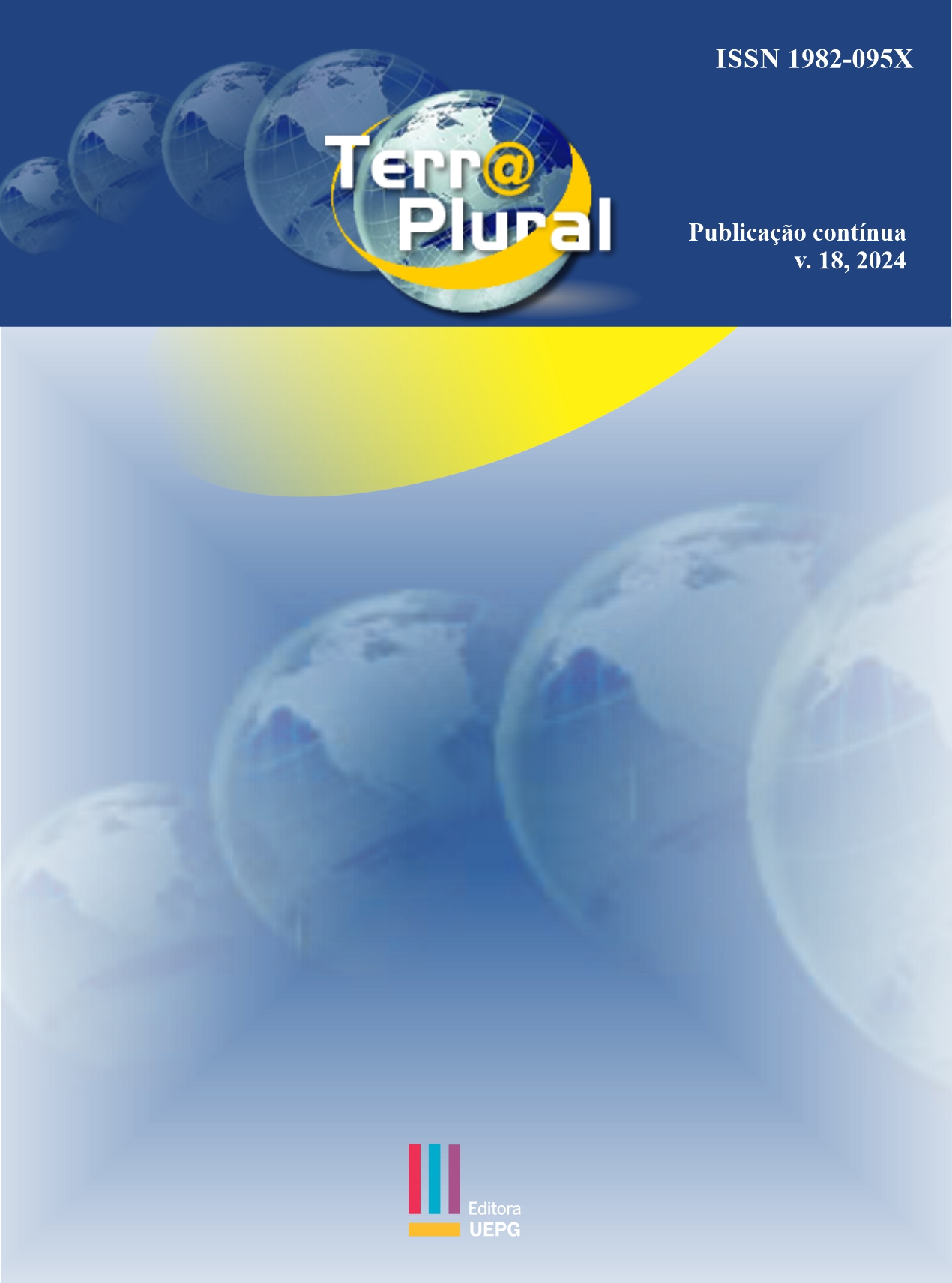Discussions on the value of nature from the perspective of political ecology
Castrian logic as Latin American socio-metabolic potential and negentropic productivity as territorialization for live
DOI:
https://doi.org/10.5212/TerraPlural.v.18.21969.003Keywords:
Nature, Political Ecology, PeasantryAbstract
The proposed text synthesizes the urgency, challenges, and alternatives for the ecological turn in terms of Political Ecology. Thus, drawing support from the recent works of Enrique Leff (2021), we investigate the theoretical-political conditions for the consolidation of environmental rationality. With this purpose, we turn to Josué de Castro’s tragic work, “Geography of Hunger,” to witness the potentialities of the re-existence of Latin American peasantry as an alternative sociometabolic ‘sentipensante’ to the object-world proposed by the matrix of economic rationality. We highlight the category of Social Metabolism as a socio-environmental cartographic practice of communities that enables the analytical denaturalization of technical power relations. Viewed as a process of territorialization for life, negentropic productivity, also known as negative entropy or syntropy, complexifies the notion of socio-metabolism, promotes the re-valorization of nature, and enables its social reappropriation. In this way, we hope to highlight the necessity of social and cultural emancipation of territorial insurgencies by peasants as fundamental precepts for addressing contemporary environmental challenges.
Downloads
Downloads
Published
How to Cite
Issue
Section
License
Copyright (c) 2024 João Francisco de Oliveira Neto, Ivair Gomes, Arlon Cândido Ferreira

This work is licensed under a Creative Commons Attribution-NonCommercial-NoDerivatives 4.0 International License.
Revista Terr@ Plural will obtain the auctorial rights for all published texts. This also implies that the text can be published anywhere in the world, including all rights on renewal, expansion, and dissemination of the contribution, as well as other subsidiary rights. The authors get permission to publish the contribution in other media, printed or digital, it may be in Portuguese or translation since the publication is credited to Revista Terr@ Plural. It allows the self-archiving of published articles in institutional repositories, thematic repositories, or personal web pages in the pdf version downloaded from the journal's site.















